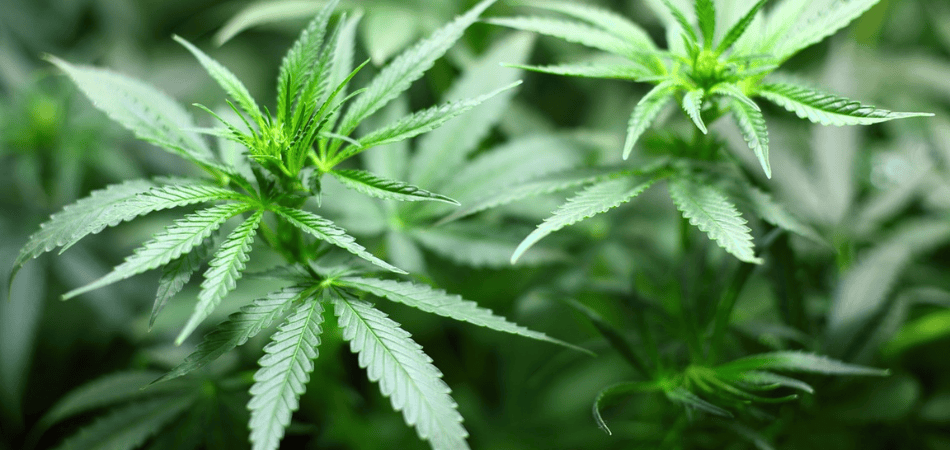Last Updated:
April 28th, 2025
Spice addiction
Spice, often portrayed in the media as turning people into cannibalistic zombies or giving them superhuman strength, is without doubt one of the most sensationalised drugs of recent times. But while this frequent misrepresentation may not be a true reflection of Spice’s effects, that doesn’t mean that Spice is not an incredibly dangerous substance. Spice abuse can lead to erratic behaviour, several serious health issues and, most notably, addiction. When you are addicted to Spice, it can seem like there is no escaping its talons, but it is important to understand that there is real and effective help available. This article will shed light on the dangers of Spice, how to spot the signs of addiction and where to turn for support.

What is Spice?
Spice refers to a wide range of synthetic cannabinoids, chemically engineered substances that mimic the effects of THC, the primary psychoactive component in cannabis. Also known by names like K2, synthetic marijuana or synthetic weed, these substances are typically sprayed onto plant material and smoked, though they can also be vaporised and inhaled.
Scientifically, Spice works by binding to cannabinoid receptors in the brain, resulting in a range of effects, from mild relaxation to intense hallucinations and psychosis. However, Spice’s effects are far more intense than THC and can produce severe reactions, including rapid heart rate, vomiting, violent behaviour and suicidal thoughts.
What is Spice addiction?
Spice addiction develops in stages, similar to other types of legal high addiction. It begins with experimentation or recreational use and can quickly evolve through stages of regular use, tolerance, dependency and addiction.
As tolerance to Spice’s effects builds, users must consume increasingly larger doses to achieve the desired high. This escalation then leads to a physical and psychological dependency where they feel unable to function normally without the drug and experience withdrawal symptoms when they cut down or stop.
Once dependency has been established, Spice addiction is then characterised by a compulsive need to consume Spice despite recognising the problems it is causing you.
What causes Spice addiction?
Spice addiction does not arise from a singular cause but is typically the result of multiple overlapping factors, including psychological vulnerabilities, environmental influences and behavioural tendencies. Understanding the underlying factors that can contribute to Spice addiction is crucial in addressing and preventing the condition:
Understanding these factors is essential in addressing the root causes of Spice addiction. It highlights the need for multifaceted intervention strategies that consider the individual’s psychological state, their environment and their unique drug reaction and behaviours.
How to spot Spice addiction signs
Recognising Spice addiction signs can be challenging as addiction is a malevolent force which can convince users and their loved ones that there is no problem. To see through this deceit, here are ten Spice addiction symptoms to look out for:
- Increasing tolerance to Spice’s effects requires more to achieve the same high.
- Experiencing withdrawal symptoms like irritability, anxiety or physical discomfort when not using Spice.
- Continued use of Spice despite awareness of its harmful effects on health and well-being.
- Neglecting important personal responsibilities to use Spice.
- Withdrawing from social activities and relationships in favour of using Spice.
- Engaging in risky behaviours, including driving or operating machinery while under the influence of Spice.
- Spending a significant amount of time and resources obtaining and using Spice.
- Inability to reduce or stop Spice use despite the desire to do so.
- Obsessive thoughts about obtaining and using Spice.
If these Spice addiction symptoms are familiar to you or someone you know, it is crucial to seek professional help. Spice addiction is a treatable condition, and reaching out for support is the first step towards recovery.
What are the effects of Spice abuse and addiction?
The effects of Spice abuse and addiction are wide-ranging and can significantly impact an individual’s life:
- Physical health risks: Spice use can lead to severe physical health issues, including cardiovascular problems, respiratory distress, kidney damage and, in extreme cases, overdose and death.
- Mental health complications: Prolonged use of Spice can exacerbate existing mental health conditions or lead to the development of new psychiatric disorders, including severe anxiety, paranoia and hallucinations.
- Cognitive impairments: Chronic Spice abuse can impair cognitive functions, affecting decision-making, memory and concentration.
- Social and relationship problems: Addiction can strain personal relationships and lead to social isolation, affecting the user’s support system and overall quality of life.
- Work and academic impact: Spice’s cognitive and psychological effects can hinder academic and professional performance, potentially leading to job loss or academic failure.
- Financial issues: The cost of sustaining a Spice addiction, coupled with the potential loss of income, can lead to significant financial strain.
- Legal consequences: Possessing and using Spice can result in legal issues, particularly in regions where it is classified as an illegal substance.
The dangers of Spice overdose
The symptoms of a Spice overdose can vary significantly due to the different chemicals used in its creation, but it can be incredibly dangerous, potentially even fatal. Immediate effects can include cardiac problems, respiratory failure, kidney damage and potentially death due to the unpredictable nature of the drug. The unregulated and unknown chemical components in Spice can also lead to poisoning, with additives and chemicals having toxic effects.
This is why it is important to be able to spot the signs of Spice overdose so you can seek medical help immediately. These signs include:
- Severe hallucinations and psychosis
- Extreme anxiety and paranoia
- Rapid heart rate and hypertension
- Nausea and vomiting
- Seizures
- Loss of consciousness
- Respiratory distress
Ensure you tell the emergency services exactly what the person has taken so they can take the right course of action immediately.
How is Spice addiction treated?
Spice addiction is a complex illness, so effective recovery is not just a matter of quitting the drug. Spice addiction treatment at UKAT involves a holistic approach which addresses every aspect of the condition. This approach follows three main stages:
- Legal high detox: This process involves medically monitored withdrawal from Spice, helping to manage and alleviate withdrawal symptoms in a safe environment. It is crucial for breaking dependence and initiating the healing process.
- Legal high rehab: This incorporates evidence-based therapy, holistic healing strategies and relapse prevention techniques to address the underlying causes of Spice addiction and develop coping strategies for long-term recovery.
- Aftercare: Following rehab, free weekly group therapy sessions for a year provide continued support, which is essential to maintain sobriety and prevent relapse. Start the
Journey to Spice recovery today
If you or someone you know is struggling with Spice addiction, UKAT can help you take the first step towards recovery. We provide comprehensive care and support in a nurturing environment, ensuring the best chance for a successful recovery. Reach out to UKAT today and begin your journey towards a future free from Spice.




